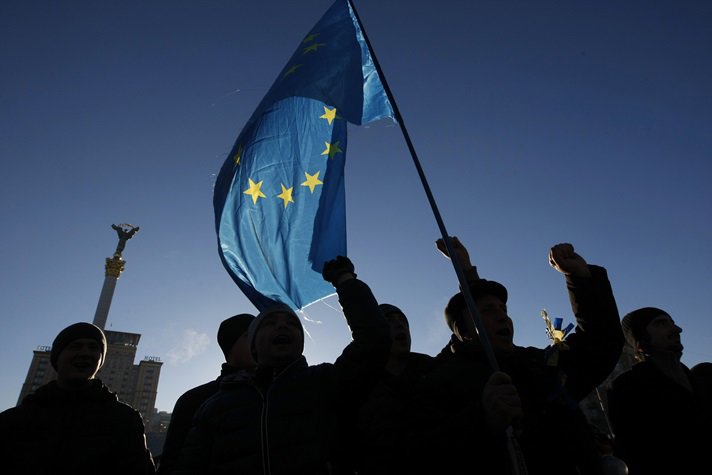Sweden supports Ukraine’s path towards the EU
Published
Ukraine’s closer ties with the EU promote the country’s development and contribute to security and stability throughout Europe. Sweden is a committed and long-term partner in this integration process and supports Ukraine on its path towards EU membership.

Shortly after Russia’s full-scale invasion in 2022, Ukraine applied for EU membership and was granted candidate status in June of the same year. Since then, formal membership negotiations have been underway. Sweden is assisting Ukraine in its efforts to implement the necessary reforms and align with EU regulations. This is broad and includes measures such as reform support, initiatives within the Nordic-Baltic cooperation (NB8), deepened political dialogue and cooperation within the EU.
Development assistance and reform support
Through development assistance, Sweden has supported Ukraine’s closer ties with the EU for over a decade. Ukraine’s reform efforts and adaptation to EU regulations are supported through extensive bilateral reform support. Through this reform support, Sweden is working actively to strengthen democracy, the rule of law and respect for human rights in Ukraine. For example, Sweden has contributed to specific reforms on anti-corruption and the rule of law.
Expert support in negotiating chapters
The EU’s negotiating chapters are the areas in which candidate countries need to align with EU regulations in order to become Member States. There are a total of 31 chapters, each dealing with a specific area, such as the environment, trade and human rights. In order to advance in the accession process, Ukraine must demonstrate that it has implemented the necessary reforms in each chapter, and the EU regularly evaluates the country’s progress in each area.
Sweden is supporting Ukraine’s efforts to fulfil EU requirements through experts and reform support in 15 of the 31 negotiating chapters. Sweden leads the EU working groups on the environment and gender equality in Kyiv and has many government agencies and organisations that can contribute to Ukraine’s EU accession through their own experience and knowledge. Cooperation spans areas such as the environment, human rights and economic development. Through assistance with the negotiating chapters, Sweden has established itself as a key partner in Ukraine’s EU integration and ensured that its development assistance is in line with Ukraine’s own reform needs and European ambitions.
Nordic-Baltic cooperation for Ukraine’s EU integration
Within the framework of the NB8 and as coordinator, Sweden has established a high-level group to provide expert support to Ukraine during its EU accession process. The group consists of advisors from the Nordic-Baltic countries with a high level of expertise and experience. The group, which is funded by Sweden, will provide support and advice to Ukraine throughout its ongoing negotiations with the EU.
Why is Ukraine’s EU membership important?
Support to Ukraine’s EU accession process is an important part of Sweden’s foreign and security policy. Integrating Ukraine into European structures contributes to stability in our neighbourhood and strengthens Europe’s resilience to external threats.
Historically, EU enlargement processes have promoted stable institutions and social reforms, and working closely with Ukraine on its EU accession process is thus a way to strengthen values such as democracy, the rule of law and human rights. Ukraine also possesses significant resources – including critical raw materials and food supplies, in particular – and advanced technological know-how that can contribute to both Europe’s security and the EU’s independence.
NB8 high-level group
Within the framework of the NB8 Sweden has established a high-level group to provide expert support to Ukraine during its EU accession process.
Bilateral reform support
Ukraine’s reform efforts and adaptation to EU regulations are supported through extensive bilateral reform support.

 X
X